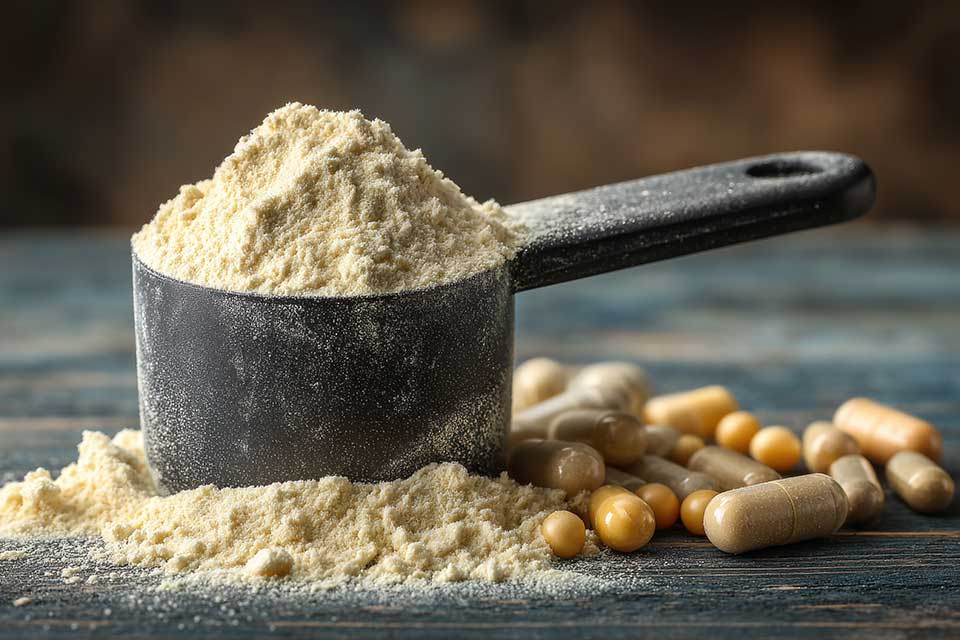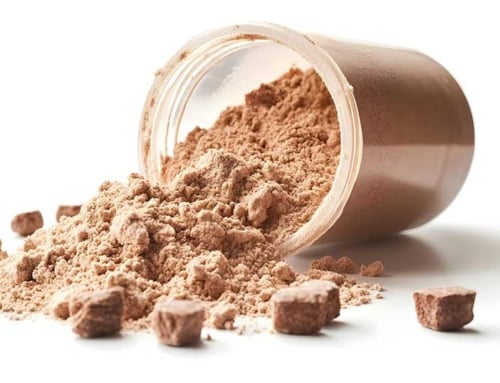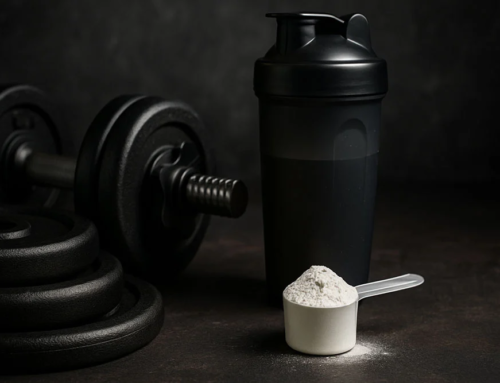Contents:
- What Is Creatine?
- 1. Increases Muscle Strength and Power
- 2. Boosts Lean Muscle Growth
- 3. Speeds Up Recovery
- 4. Improves Sprinting and High-Intensity Performance
- 5. Enhances Cognitive Performance
- 6. Supports Bone and Joint Health
- 7. Reduces Fatigue
- 8. Helps Maintain Muscle During Calorie Deficits
- 9. May Protect Against Neurological Decline
- 10. Safe and Effective for Long-Term Use
- How to Take Creatine
- The Bottom Line
Share This Story, Choose Your Platform!

Top 10 Benefits of Creatine Backed by Science
When it comes to sports nutrition, few supplements have earned the same reputation as creatine. It’s one of the most heavily researched performance enhancers available today, and study after study continues to confirm what athletes and bodybuilders have known for decades — creatine works. From boosting muscle strength to supporting brain function, creatine is a powerhouse supplement that belongs in almost every stack.
What Is Creatine?
Creatine is a naturally occurring compound found in small amounts in foods like red meat and fish. It’s also produced by the body from amino acids. Stored in the muscles as phosphocreatine, it helps regenerate ATP — the body’s main source of energy during high-intensity exercise. This is why supplementing with creatine is so effective: it allows you to train harder, recover faster, and ultimately grow stronger.
1. Increases Muscle Strength and Power
The number one reason people take creatine is simple: it makes you stronger. By increasing ATP availability, creatine gives your muscles the energy they need for short bursts of power. Whether you’re lifting weights, sprinting, or performing explosive movements, creatine can help you push past your limits.
2. Boosts Lean Muscle Growth
Creatine doesn’t just help you lift more weight — it also helps you build more muscle over time. The increased training volume and intensity it enables translates to greater hypertrophy. Additionally, creatine draws water into muscle cells, creating an environment that promotes muscle growth and fullness.
3. Speeds Up Recovery
Post-workout soreness can slow down progress. Creatine has been shown to reduce muscle cell damage and inflammation, helping athletes recover quicker between sessions. Faster recovery means you can train more often and with higher intensity.
4. Improves Sprinting and High-Intensity Performance
Creatine is particularly effective for short, explosive activities like sprinting, HIIT workouts, or sports that require repeated bursts of power. By replenishing energy stores faster, you’re able to maintain performance across multiple sets or sprints.
5. Enhances Cognitive Performance
Surprisingly, creatine isn’t just for muscles. Studies suggest that creatine supplementation can improve memory, focus, and mental clarity — particularly in stressful situations or sleep-deprived states. That makes it a supplement with benefits both inside and outside the gym.
6. Supports Bone and Joint Health
Some emerging research indicates that creatine may support bone density and joint strength, particularly when combined with resistance training. This makes it useful not only for athletes but also for older adults looking to maintain mobility.
7. Reduces Fatigue
By supporting energy metabolism, creatine can reduce feelings of tiredness and fatigue. This is particularly noticeable during back-to-back training sessions or when you’re pushing your endurance to new levels.
8. Helps Maintain Muscle During Calorie Deficits
If you’re cutting calories to lose fat, creatine can help preserve lean muscle mass. It provides the energy and recovery support your body needs to hold on to muscle while you’re in a deficit.
9. May Protect Against Neurological Decline
Researchers are exploring creatine’s potential role in supporting neurological health. Early studies suggest it may help protect brain cells from damage and slow down the progression of certain neurological conditions. While more research is needed, the outlook is promising.
10. Safe and Effective for Long-Term Use
Perhaps the biggest advantage of creatine is its safety record. Unlike many supplements that come and go, creatine has stood the test of time. It’s safe for healthy adults to use long-term, with no evidence of harmful side effects when taken at recommended dosages.
How to Take Creatine
The most common form is creatine monohydrate. A daily dose of 3–5g is enough for most people. Some choose to do a “loading phase” of 20g per day for 5–7 days to saturate muscles quickly, but this isn’t essential. Taking creatine consistently is more important than timing, although many athletes prefer to take it post-workout with a shake.
The Bottom Line
Creatine is one of the best supplements you can add to your routine. Backed by decades of scientific research, it’s proven to increase strength, improve recovery, support muscle growth, and even enhance brain health. If your goal is to perform better in the gym, on the field, or in everyday life, creatine deserves a permanent spot in your supplement stack.




